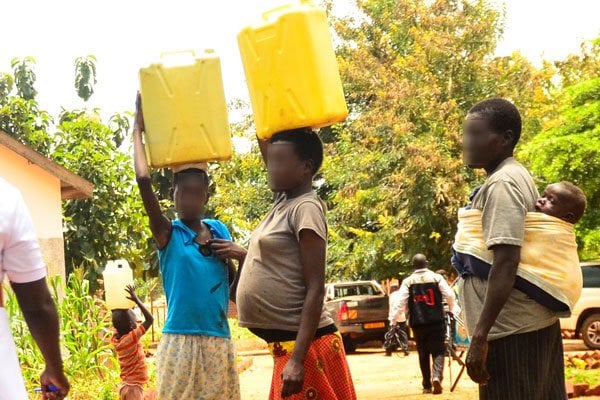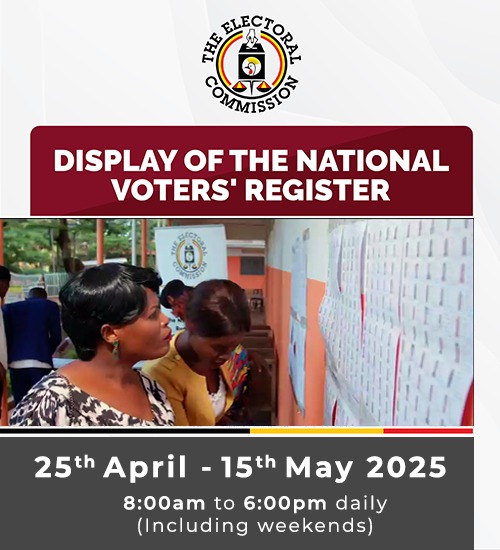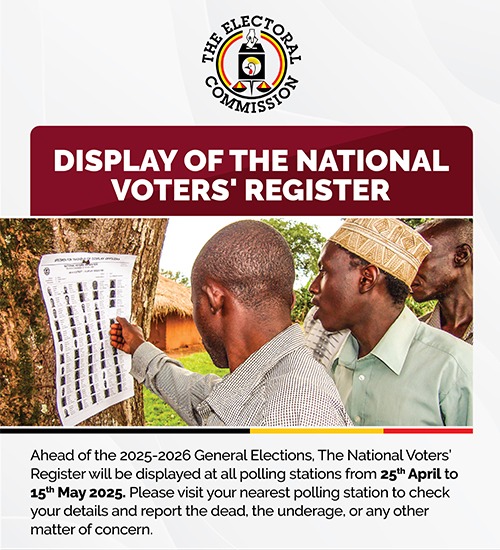Kampala, Uganda — Researchers from Uganda and Canada have released a startling report detailing the rampant prevalence of teenage motherhood in Uganda.
The groundbreaking study, titled “Motherhood in Adolescence: Voices from the Margins,” was conducted by scholars from the University of Victoria, Canada, Makerere University, and the Nascent Research and Development Organisation (NRDO-U) particularly in the Iganga and Kawempe regions.
The study was conducted in 2023 in Bulamagi Sub-County Iganga district and Kawempe Division Kampala Capital City, ensuring a broad representation of girls aged 10 – 19.
According to the population projections by the Uganda Bureau of Statistics (UBOS (2023), Kawempe division and Iganga district had a total of 49,752 and 18,900 girls aged 10–19 years, respectively, on which the sampling was based.
In all, youth peer researchers canvassed door-to-door to recruit survey participants. In total 766 girls aged 10 – 19 were interviewed (98.7% from Iganga district and 95.8% from Kawempe division). The average age and median age were 16.5 and 17 in Kawempe and Iganga respectively. Most of the girls who responded to the survey were in the 15-19 age group
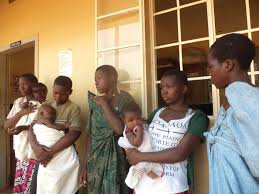
The starting point (center point) was the Local Council 1 (LC1) office, and the first home was the closest to the LC1 office. Then, the youth peer researchers moved to all homes until they met a boundary, such as a road.
They would then move right until they reached the targeted number of girls aged 10- 19. Age (10–19 years), residence in the study area and being female were the only inclusion criteria factors.
“We aimed to include everyone in the age bracket regardless of their motherhood or pregnancy experiences. For households with more than one adolescent girl, we used the manual lottery method to select one,” says the principal investigator Dr. Doris Kakuru a professor of Child and Youth Care at the University of Victoria.
Kawempe was categorized as an urban area while Iganga is a rural area, and notably, despite being categorized as an urban area, Kawempe is one of Kampala’s poor urban locales, where people with the lowest incomes live.
The Findings
The findings from this comprehensive survey, paint a harrowing picture of the challenges faced by teenage mothers in these two areas, and by extension, the whole country
The data reveals that almost half (47.4%) of the girls in Iganga and 28% in Kawempe have experienced pregnancy, although not all carried the baby to term.
Disturbingly, many of these young mothers met the men who impregnated them at their homes, with the men often being 1-6 years older. The age at which girls first became pregnant did not significantly differ between the two regions.
Notably, most girls (74.4% in Iganga and 53.9% in Kawempe) received support from their mothers during pregnancy.
The study further uncovered multiple factors contributing to teenage pregnancies, including the failure to find contraceptives such as condoms, meeting a one-time financial need, and being forced into unwanted pregnancies by violent boyfriends.
“Girls as young as 10 are sexually active, with some becoming pregnant. This is a clear indication of the urgent need for better sexual and reproductive health education and services,” said Dr. Kakuru.
The report goes on to highlight the societal stigma attached to teenage motherhood.
For instance, about 46.7% of young mothers in Iganga and 20% in Kawempe expressed that they were not proud of their status. Particularly, community perceptions were overwhelmingly negative, with 40.7% in Iganga and 35.5% in Kawempe rating young motherhood as ‘bad.’
The other significant finding was the lack of access to essential reproductive health services.
Over half of the girls who have been pregnant (62.6% in Kawempe and 52.7% in Iganga) wished they had known how to avoid unwanted pregnancy.
Additionally, the study found that these girls need help accessing menstrual hygiene products, including underwear.
“The study found that many young mothers had sex to meet a financial need, with 15% in Kawempe and 5.5% in Iganga admitting to this,” Dr. Kakuru revealed in an interview with this website.
Challenges in accessing antenatal services were also noted, with 56% of young mothers experiencing long wait times at health facilities.
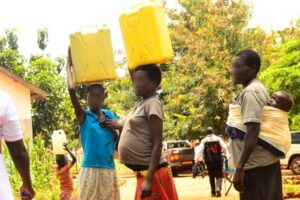
“Only 37.9% of those who delivered at a healthcare facility were satisfied with the services, and 20.9% were very satisfied. Additionally, access to public health facilities, primary and secondary schools, and police stations was also found to be easier for girls in Kawempe than in Iganga,” she said.
The study also revealed concerning practices such as pregnancy and virginity tests, with 30% of girls in Kawempe undergoing pregnancy tests and 3.4% subjected to virginity tests.
“In Iganga, we found that 9.6% underwent pregnancy tests and 2.6% virginity tests. Alarmingly, some girls did not believe they had the right to report forced sex and physical violence perpetrated by their boyfriends, partners, or husbands,” Dr. Doris wondered.
She said the study thus revealed that contraceptive use among the girls was low, with 72% not using any contraceptives. Those who did use contraceptives started between the ages of 17 and 19, with injections from health centers being the most utilized method and early one-third of the respondents found it impossible to access a condom.
Recommendations
Given the above startling findings, the scholars recommend an urgent need for improved access to reproductive health education and services for young girls
They further root for addressing these challenges a necessary step to improving the lives and futures of Uganda’s young girls, ensuring they have the support and resources needed to thrive.
They further call for immediate action to provide better sexual and reproductive health services, combat societal stigma, and support young mothers in Uganda.
This study aimed to investigate the complex interplay of gendered, generational, structural, and cultural forces that shape the experiences of young motherhood in rural and urban Uganda.
The study was funded by the Social Sciences and Humanities Research Council of Canada, under Grant number 890-2020-0017 and the research project was implemented between April 2021 and November 2024.
For more on these findings, please reach out to the Principal investigator for more information at doriskakuru@uvic.ca or visit our website: https://onlineacademiccommunity.uvic.ca/cmv/
AUTHOR BIOS
Doris Kakuru (PhD) is a professor of Child and Youth Care at the University of Victoria (UVic). She is a scholar of children’s geographies and adolescent SRHR is a key strand of her research program. Dr. Kakuru also conducts research about violence against children and child rights in education. She is a member of UVic’s Sexual and Reproductive Health Research cluster and Editor-in Chief of the International Journal of Child Youth and Family Studies.
Annah Kamusiime is a PhD Researcher at ISS-EUR. She is also a Director of Programmes at Nascent RDO- Uganda. Her research and practice are in the areas of gender and adolescent sexual and reproductive health and rights, early childhood education and development, social protection, and community development. She is a qualitative researcher with expertise in collaborative research with young people as peer researchers.
Grace Bantebya Kyomuhendo (PhD) holds a PhD from the University of Hull, UK. She is a professor of Women and Gender Studies at Makerere University. Her current research focuses on teenage pregnancy and young motherhood, adolescent girls’ empowerment, gender justice, and the prevention of sexual harassment of young women in institutions of higher education.
Mandeep Kaur Mucina (PhD) is a Professor in Child and Youth Care, University of Victoria, BC, Canada. Her current research and social justice work focuses on family violence, gender-based violence, critical migration studies, and exploring second-generation South Asian women’s resistance, identity, and encounters with racism in the diaspora. Mandeep has extensive experience in community-engaged research with BIPOC women and girls, narrative and life-history research, action-based research, critical discourse analysis, and policy and practice analysis, South Asian feminisms, and intersectionality-based research.
Jacqueline Nassimbwa is a Sexual, and Reproductive Health and Rights (SRHR) professional with over 10 years of experience working with civil society in Uganda. She holds an MSc in International Health and is a finalist graduate student at the School of Child and Youth Care, University of Victoria. Jacqueline coordinated the fieldwork activities on the CMV project.
Jackline Nabirye is a social development worker experienced in gender equality advocacy, social transformation, and rights-based programming. Her expertise spans child protection, sexual and reproductive health rights, and gender-transformative approaches across training, research, capacity-building, and girl-centered initiatives. She holds a Master of Arts (MA) in Gender Studies and is currently a graduate student at the School of Child and Youth Care, University of Victoria, BC, Canada.
Phiona Tumuheise is a graduate student at the School of Women and Gender Studies at Makerere University Uganda, researching adolescent girls’ Sexual and Reproductive Health Rights. She mentors young girls through MEMPROW (Mentoring and Empowerment Program for Young Girls) a feminist organization based in Uganda. She is passionate about advocating for young women’s rights and safety.
About The Author
Arinaitwe Rugyendo
Rugyendo is the Founder and Editor-in-Chief of ResearchFinds News. He’s an accomplished journalist with a rich background in the media industry in Uganda. With over two decades of experience, Rugyendo has held various roles including cab reporter, Bureau Chief, Managing Editor, and Digital Media Editor at renowned publications such as Daily Monitor and Red Pepper. Throughout his career, he has demonstrated a commitment to delivering high-quality journalism and staying at the forefront of media trends. In addition to his journalistic pursuits, Rugyendo is currently pursuing a Ph.D. in Journalism and Communication at Makerere University. He has been recognized for his outstanding leadership and commitment to social change as a Desmond Tutu Fellow and Crans Montana New Leader. Rugyendo also serves as the Chairman of Young Engineers Uganda and Uganda Premier League, showcasing his dedication to promoting excellence and growth in various fields. With a passion for driving innovation and pushing boundaries in media, Rugyendo continues to make significant contributions to the industry. His vast experience, academic pursuits, and leadership roles make him a respected figure in the Ugandan media landscape.

